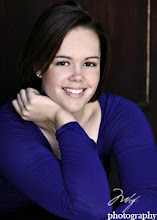 As I am sure some wise person said sometime, the only thing that is almost as common as an abandoned blog is a resurrected one. I’ve just remembered how much I enjoy writing about things not related to non-representative government and Marxist economic theory, as I do here, and I’m pretty sure you like reading about lighter (or maybe just different) things too. So I guess I’m back, as it were, with a new picture in the header and a new goal to make you think and make you smile, in either order. - AES
As I am sure some wise person said sometime, the only thing that is almost as common as an abandoned blog is a resurrected one. I’ve just remembered how much I enjoy writing about things not related to non-representative government and Marxist economic theory, as I do here, and I’m pretty sure you like reading about lighter (or maybe just different) things too. So I guess I’m back, as it were, with a new picture in the header and a new goal to make you think and make you smile, in either order. - AES Despite the many road novels and country songs warbling its merits, young people hate the journey. The smart, ambitious, handsome ones want the destination. Whether it is getting in to the best college, or getting into the best graduate school, or landing the best job, their main goal is results. The whole alphabet is Type-A people, and they are very goal-oriented, probably because that’s what Very Successful People are, according to the books.
The primary motivation for going to college is, especially at a B-list state school like this one, monetary gain. We go to college to make more money. It is not, at least here, to learn how to live, or to learn how to be a citizen of the world, or to learn how to recognize and promote goodness and beauty. Even the foolish liberal arts majors will more than likely end up being dental hygienists who can list “explication of post-modernist poetry” as one of their skills. The object of a class here is the grade. The object of the experience here is the diploma. The object of a diploma is a job.
My classmates and I do try, I think, to learn for the sake of learning, but we’re liberal arts majors. We read Pound and Proust because we love literature (and we like to name-drop), but we are constantly thinking about graduate schools/teaching degrees/that novel that has yet to arrive. Society is organized to reward the practical man who can set aside his passions to knock out a degree in engineering, or something, and pity the poor English major who can’t or won’t.
I realize that this view is limited by my youth, that one’s job is not one’s whole life, and that money is fulfillment enough for some people. But I live inside a system of endemic waste and misguidance every day, wasting taxpayers’ and certainly my parents’ money so I can “learn” of such idiotic things as phonetic keys, or basic grammar structure, or plays that I read and understood passably well in the eighth grade (really – The Importance of Being Earnest). It is a constant struggle to remember that every day is my life, not the day I will be graduated and, hopefully, making a living doing, well, this. Today is my life. Today, a day spent learning more reading Wikipedia during one “general education” class session than in the entirety of the class itself.
Though I have little understanding of economics or life or anything, I know this much: learning is good. Money is cold. Passion is rare. Whether in the classroom or outside of it, young people should learn that life is now, not the indeterminate time sometime in the future when you land the privilege of wearing a suit and tie for the next forty years. I’m probably stupid and I’m certainly arrogant to chose to take four years studying, essentially, how to read, but my story is at least as sad as the person who gets a degree in finance because she thinks it will guarantee her a job.
So here a few more clichés I’ve heard from my more learned (or at least experienced) sensei: enjoy the journey. Your life is not more in the future than it is today.
